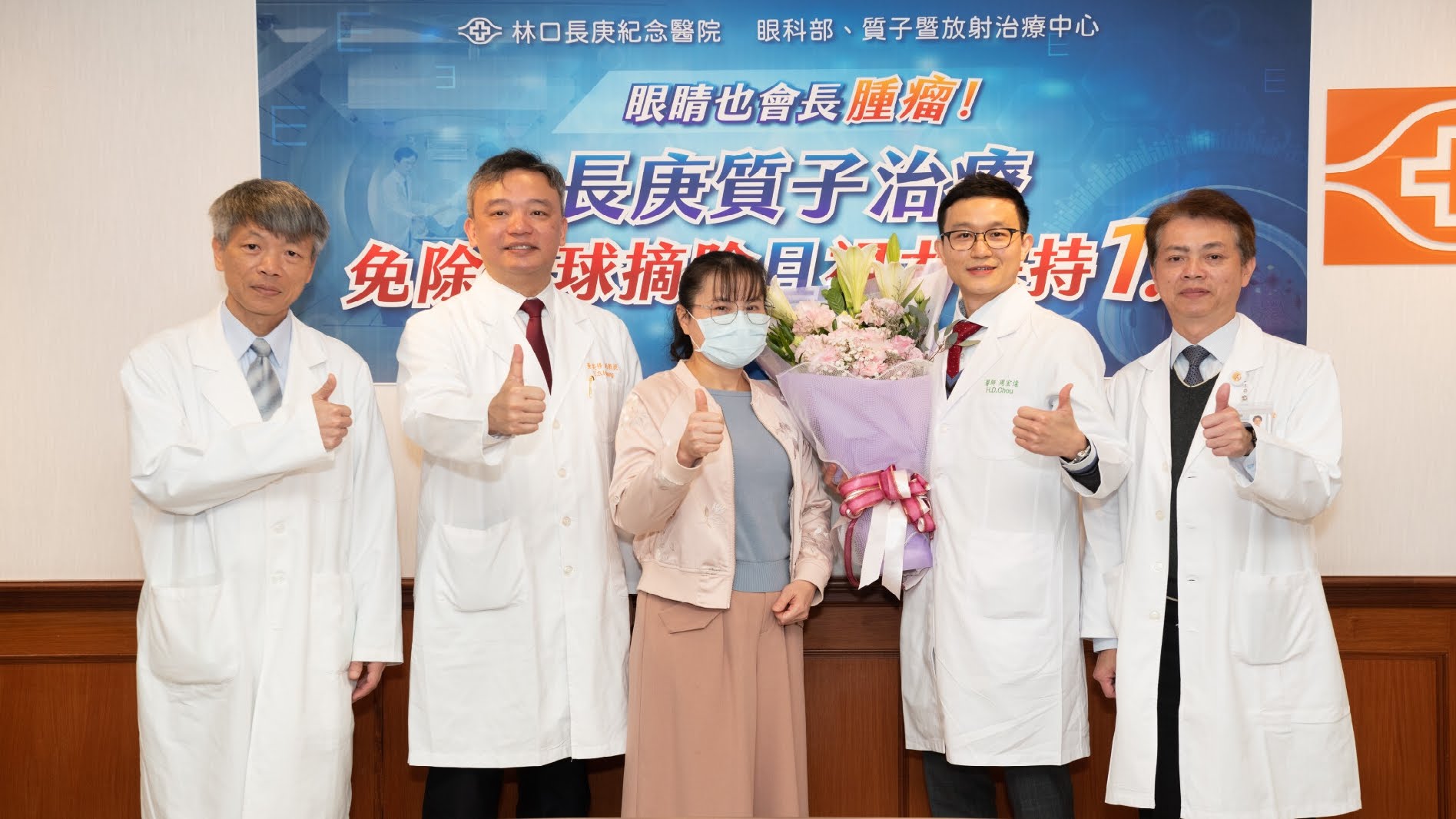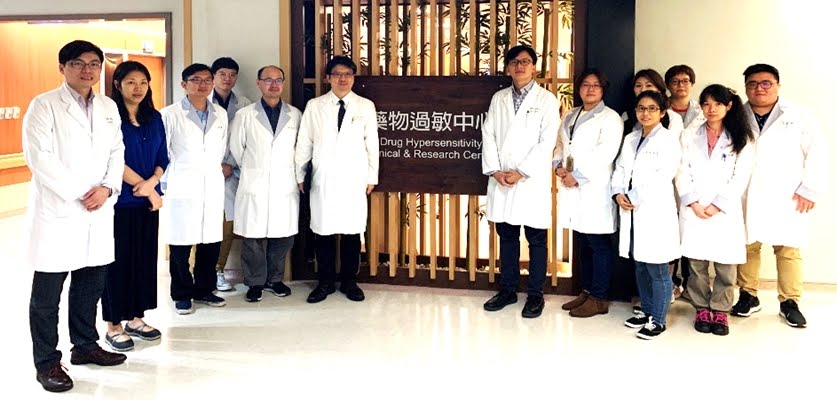Chang Gung Medical Foundation
The Medical Center Achieving the Excellence in Sympathetic Nerve Reconstruction and Surgical Training

The Proton and Radio Therapy Center treated more than 6,500 patients(Photo curtesy: Chang Gung Medical Foundation)
The Chang Gung Medical Foundation, which established the prestigious Chang Gung Memorial Hospital (CGMH), serves as a hub for microsurgery training and the is first institution in Taiwan to invest in facilities for proton and radiotherapy. This article featured CGMH and the impact it has had on industry development driven by the healthcare system.
World’s Leading Sympathetic Nerve Reconstruction (SNR/ETS Reversal) and Surgical Training
CGMH has pioneered sympathetic nerve reconstruction with the da Vinci Surgical System, addressing compensatory sweating and sympathetic never regulation issues resulting from the treatment of excessive hand sweating.
The procedure since 2019 has been developed as a distinctive surgical approach at CGMH’s Linkou branch and has completed 102 reconstruction cases. The hospital not only aims to become the world’s first certified sympathetic nerve reconstruction center using the da Vinci system but also collaborates closely with the Chang Gung Memorial Hospital Surgical Training Academy & Research Center to have developed surgical training programs for surgeons and medical professionals from around the world.
Dr. Nai-Jen Chang, an Associate Professor in the Department of Plastic and Reconstructive Surgery, pointed out that approximately 3-5% of the global population suffers from excessive hand sweating and other localized hyperhidrosis issues. Endoscopic thoracic sympathectomy (ETS) resection surgery is an option for patients who do not respond to other treatments.
Despite more than 300,000 patients in Taiwan having undergone an ETS procedure, some were still disturbed by problems such as compensatory sweating, abnormal temperature regulation, low energy levels, and emotional distress.
The Thoracic Surgery, Plastic and Reconstructive Surgery, and Urology departments at CGMH have worked seamlessly to deliver sophisticated microsurgery altogether with the da Vinci system: they access the chest to separate the thoracic sympathetic nerve and intercostal nerves, then proceed to the posterior abdominal cavity where they identify the lumbar sympathetic nerve along the psoas muscle and vertebrae, followed by the Sympathetic Nerve Reconstruction (SNR/ETS Reversal) procedure using pre-selected, ready-to- use nerves.
The teamwork, combined with the robotic-assisted surgical system, has achieved optimal reconstruction results with minimal disruption. The SNR/ETS Reversal has become a prominent procedure at CGMH recognised worldwide, taking approximately 8-10 hours, with patients typically discharged 3-4 days after the procedure. As of August 2023, 102 cases have been completed, including 35 foreign patients.
The CGMH team dedicated to SNR/ETS Reversal has years of experience and expertise in helping patients resume a life without being troubled by post-surgery hyperhidrosis. The recently launched “Chang Gung Memorial Hospital Surgical Training Academy & Research Center” has the capacity to accommodate a hundred doctors and 24 procedures in a single training session, making the center the largest facility of its kind in Taiwan and an ideal place for learning and professional development.
The Only “Drug Hypersensitivity Clinical and Research Center” in Taiwan Developing a Technology Platform for Drug Allergens
Nearly a hundred cases of drug-induced severe cutaneous adverse reactions are reported every year in Taiwan, with commonly implicated medications including antiepileptics, uric acid reducers, antibiotics, anti-inflammatory painkillers, and certain types used in cancer treatment.
Over the past 20 years, the Drug Hypersensitivity Clinical and Research Center at CGMH has been providing clinical services whilst conducting foundational research. The Center has developed a globally acclaimed immunological testing platform for drug allergens, which works to prevent severe adverse reactions by testing the activity of in vitro immune cells.
In addition to antiepileptic and uric acid-reducing medications, the center has also developed an in-vitro diagnostic (IVD) testing kit for sulfonamide antibiotics that provides early warnings of adverse reactions.

The team at the Drug Hypersensitivity Clinical and Research Center(Photo curtesy: Chang Gung Medical Foundation)
The Center is proactively partnering with domestic and multinational laboratories to explore various genes and biomarkers associated with drug allergies. It is also engaged in technology licensing for drug allergy tests and is seeking to co-develop test kits that can be included in health check-up packages.
The Proton and Radio Therapy Center Advancing in Small Tumour Treatment
In 2015, CGMH launched its Proton and Radio Therapy Center, which has since treated nearly 6,500 patients in Taiwan. As a pioneer in proton therapy in the country, CGMH has worked to combine radiation therapy with immunotherapy, and in 2022, the hospital introduced a “copper block” used to precisely target small tumours during proton stereotactic radiosurgery.
Dr. Din-Li Tsan, Deputy Director of the Department of Radiation Oncology at CGMH, explained that in the past, small tumours, particularly those in the eye or brain measuring less than 3 centimetres, posed challenges in terms of calculating radiation doses. The copper block designed by CGMH has been applied to treatment, enhancing the precision of radiotherapy whilst lowering the risk to damage healthy cells.
The team is currently collaborating with Sumitomo Heavy Industries in Japan to develop Flash Radiation Therapy (FLASH-RT), which is aimed at delivering high-dose radiation to tumours in an extremely short time.
The said technology has advantage beyond cancer treatment. The Proton and Radiation Therapy Center assists the space and semiconductor industries in radiation testing of high-end chips. Medical physicist Shen-Hao Li explained that space environments have intense radiation, hence the necessity of radiation resistance testing before chips or commercial components being launched into space to ensure their stability. Now, such tests can be conducted at CGMH rather than overseas. The facilities in place are capable of simulating space environments for testing purposes.
★★★More by CGMH
▍5G-Equipped Ambulance Connecting to Cloud-Based Platform, in Collaboration with
Quanta Computer Inc.CGMH’s ambulances are equipped with physiological monitoring systems, respirators, and cameras, allowing real-time 5G transmission of data and images related to the patient’s health condition for the medical team to evaluate and respond readily during the patient’s transportation to the hospital. The camera and the cloud-based platform carrying and integrating data from various devices, along with the information and communication technologies involved, have been developed by Quanta Computer Inc.
▍Portable Monitor for Preventing Mild or Chronic Dehydration
Clinically, dehydration relies primarily on blood tests and urinalysis, but often it occurs where no testing is readily available. CGMH has been developing a portable device, resistant to RF interference, that can collect minimal body fluids (e.g. saliva) and rapidly measure samples to confirm whether a patient is dehydrated and, if so, assess options for treatment where necessary.
▍Fixation Assistance Device Simplifying Surgical Sutures
Suturing and anastomosing tubular structures in various surgical procedures can be exceptionally challenging, even more so achieving symmetry or perfection, particularly on small incisions. This often requires the experience of a surgeon to secure the stitches stably to avoid asymmetry and kinking.
CGMH’s patented device features multiple open ends that help control the direction of sutures, coupled with directional indicators that guide the surgeon in placing the needle precisely. This device ensures a more precise and reliable suturing procedure.
Chang Gung Medical Foundation at Healthcare+ Expo 2023
- Thursday, 30 November to Sunday, 3 December
- Booth No. J102


